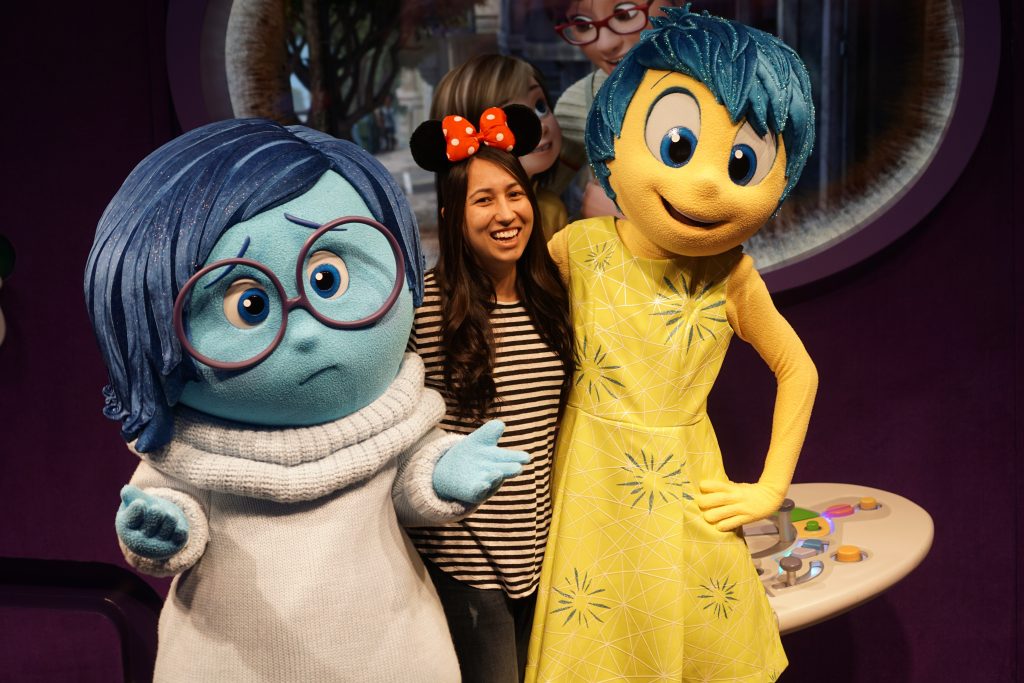
Teaching middle schoolers (or anyone, really) about the complexities of mental and emotional health is no easy task. Introducing emotions, learning how to identify and express feelings, and understanding how to cope with life is daunting. And the risk of inadequately teaching about these concepts is scary. But the danger of not even attempting to teach mental and emotional health is much more detrimental. So what's a middle school teacher to do?

(Definitely worth the looooong Disney line)
Thankfully, we are now living in a post-Inside Out. And the Disney Pixar geniuses created a movie that breaks down barriers of vulnerability and creates a safe space to learn about the intricacies of mental and emotional health. The story of Riley's emotions and her journey to cope with major life changes is timeless, allowing viewers of all ages to powerfully connected with the themes of this film. It is a must-watch for every student (and teacher).
When I first watched Inside Out I was in the middle of creating a new health curriculum. As soon as I watched Riley's story unfold, I knew it would be the foundation of my emotional and mental health unit. Here's a quick refresher on what mental and emotional health is.
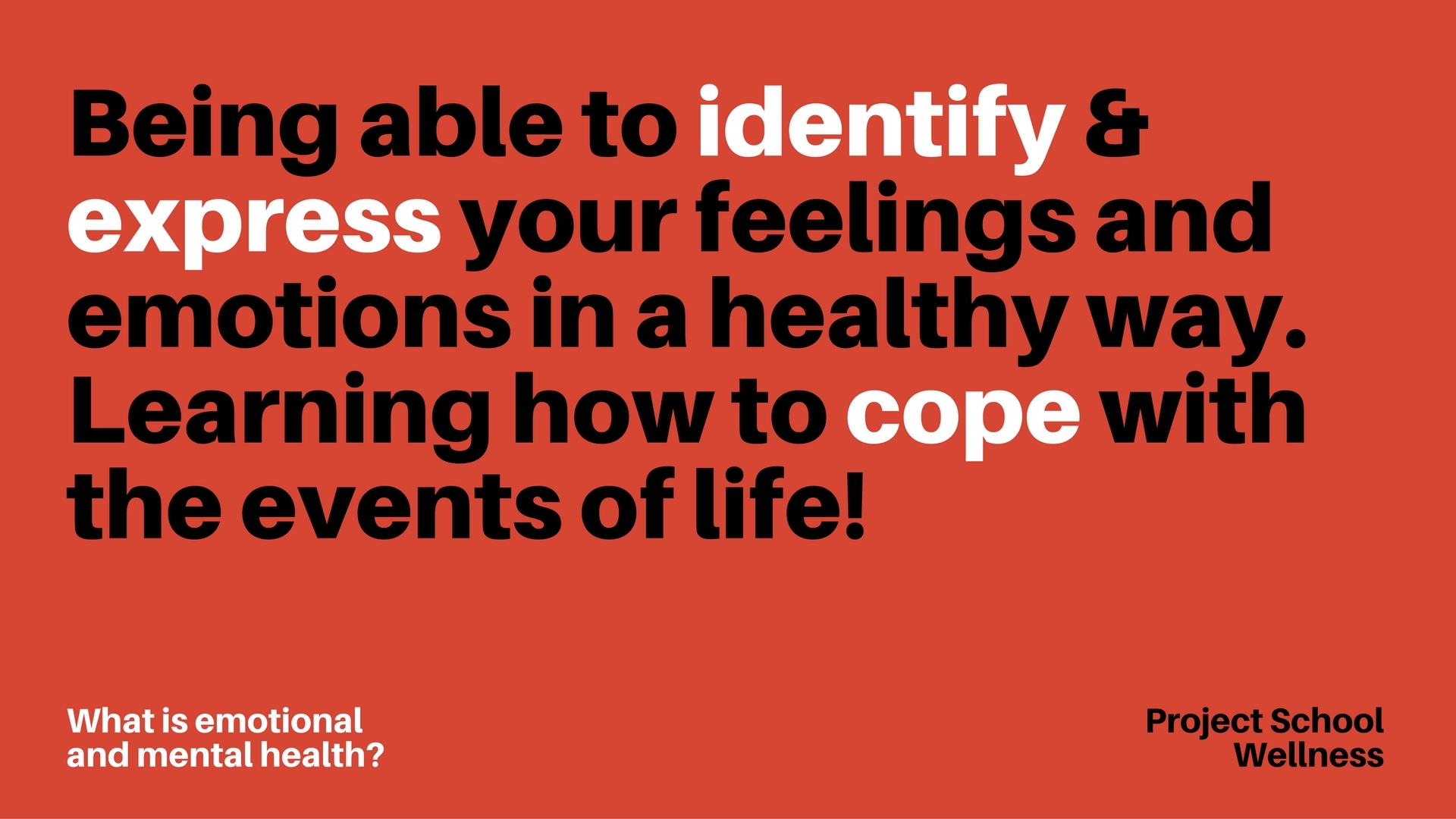
Due to health's interconnected and multidimensional nature, mental and emotional health plays a key role in empowering individuals to thrive. The ability to identify and express feelings and emotions and having the skills to cope with life is vital to well-being. Without these skills, we creep through life merely surviving.
To help that sink in, let's pause for a moment and think about everything connected to these skills: relationships of all types, school success, work success, physical health, and everything else in between. I am not exaggerating when I say it is if of the utmost necessity to teach students about mental and emotional health.
Okay, let me get off my soapbox. It's time to talk about how you can actually use Inside Out in your classroom.
I'm not kidding when I say Inside Out is a must-watch. As I mentioned early, this movie breaks down barriers and allows students to look at the deepest and darkest aspects of their well-being. It creates a space for students to understand the complexities of human emotion and feelings. It also gives students language and insight to better express what they are feeling and working through in both the lowest and highest moments of life.
Depending on your students' age and life stories, the Inside Out experience is going to vary. There's no shortage of themes and topics presented throughout the movie. So to make it a little less daunting, I thought I'd share the topics that spoke most to my students and their situations.
For the lower grades, I think it is valuable to use Inside Out as a tool for teaching the fundamentals of emotional and mental health. For example.
Along with the lower elementary grade teaching points, Inside Out can be used to teach students about.
Building upon what has been taught in the previous grades, as students get older Inside Out provides an opportunity to teach kids about.
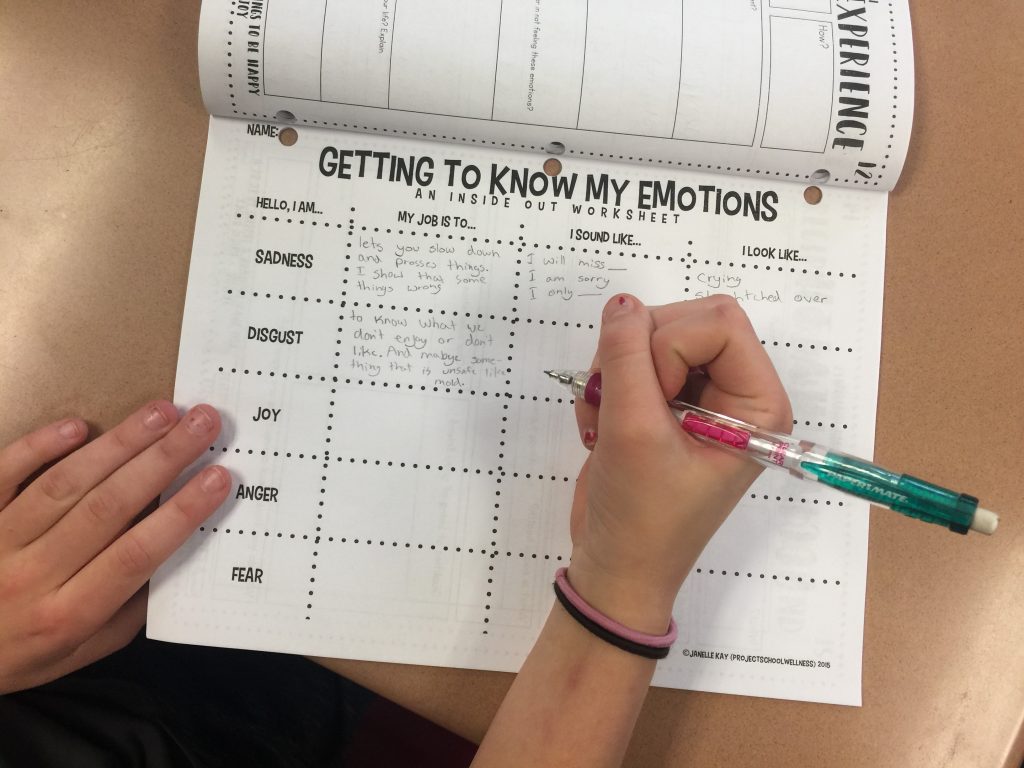
So what exactly does this look like in the classroom. Well, I just wrapped up my second round of teaching Inside Out, so let's take a look at what I did. I began by choosing one specific focus for each grade level. There is so much going on in the movie and it is way too easy to overwhelm yourself and your students. Fight the temptation and just choose one topic.
Here's my topic choices - each based on of one of my Inside Out inspired worksheets
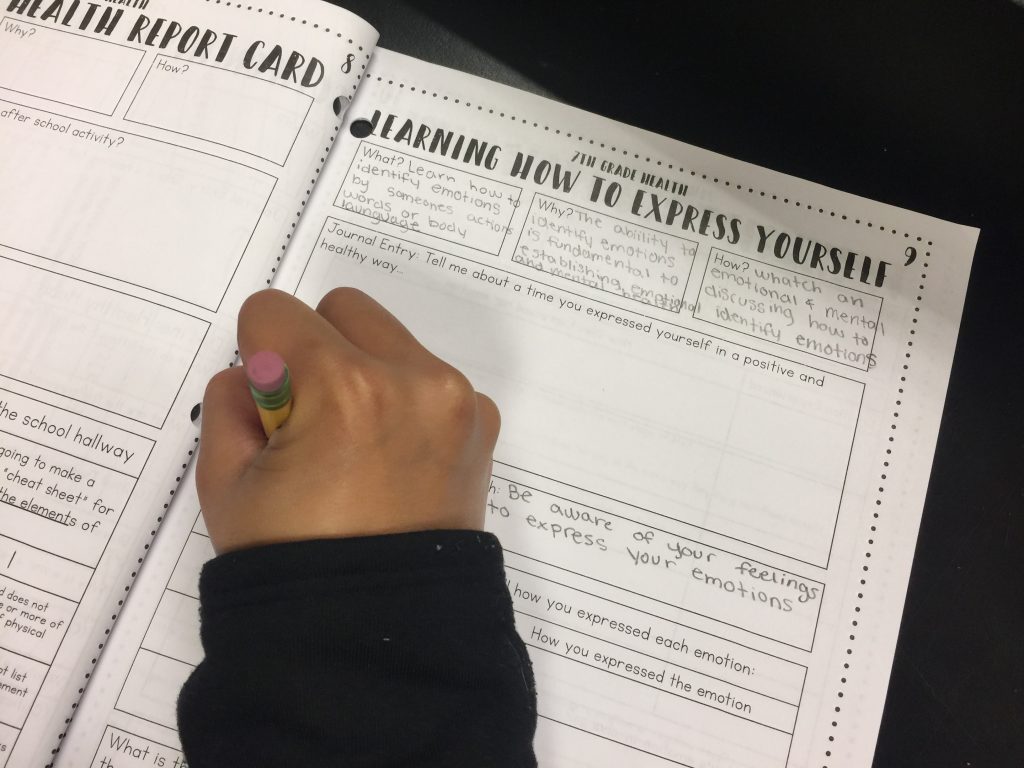
And here's a look at the 4ish hour lesson progression.
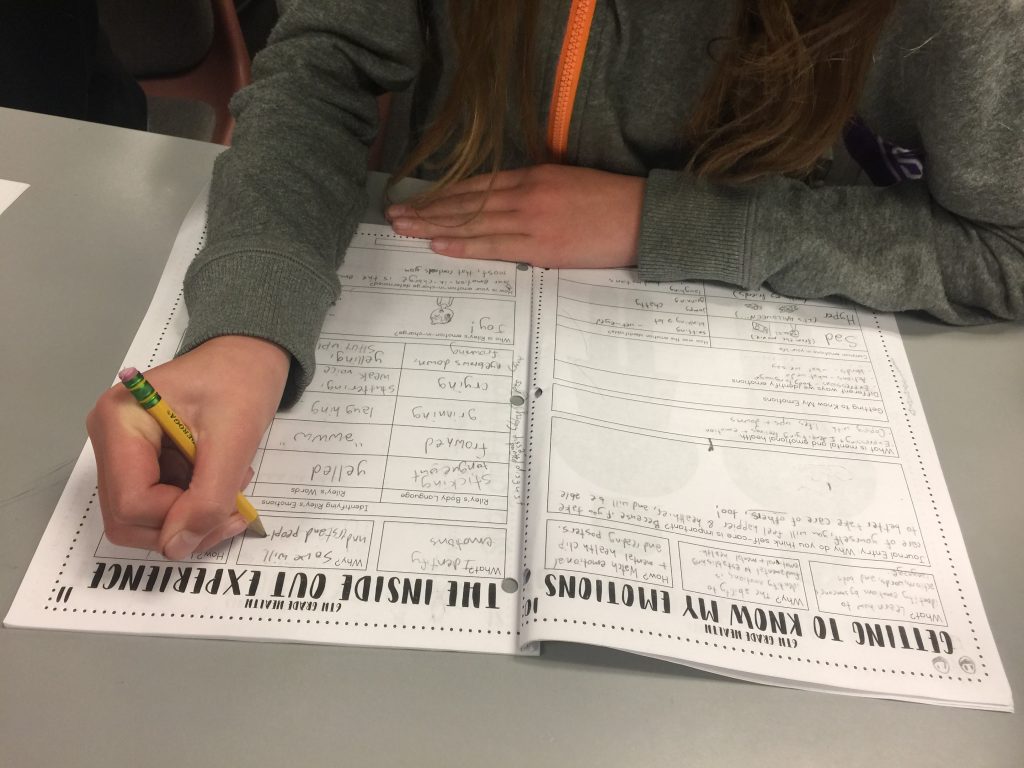
I really enjoyed this progression and method of using Inside Out - it was age-appropriate, challenging, and entertaining. Of course, using Inside Out will vary from teacher to teacher, which is the beauty of it. The possibilities are endless!
Have you used Inside Out in your classroom? Or another movie like Zootopia (Plus Bonus Features) (Ooooh or Moana) but for that, we'll have to wait until next year)? I'd love to hear all about it. Comment below or on FB and Instagram!
P.S. If you like this post, check out this post on Wonder by R.J. Palacio